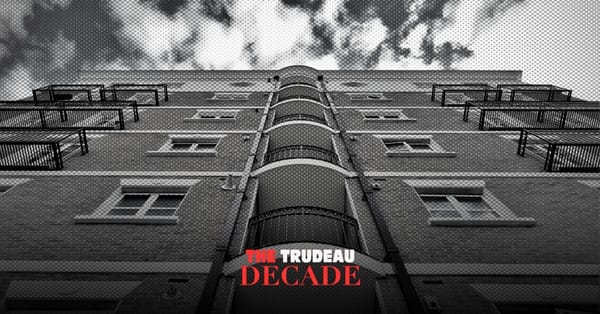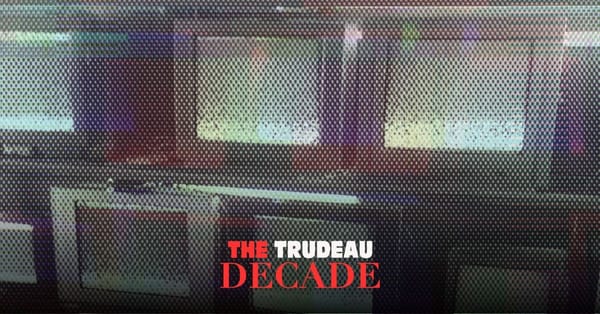“Who is ready for powerful paycheques?” yelled Rob Batherson at the crowd to open the 2023 Conservative Party convention.
The Conservative Party national council president was pumping up the audience, previewing the three main issues that the party brass wanted to impress most upon the delegates. He also asked “who’s ready to axe the [carbon] tax?” and “who is ready for houses workers can afford?”
Conservative Party Leader Pierre Poilievre stuck closely to the same points, spending a significant part of his speech – the convention's main event – talking about affordability. He blamed the rising cost of everything on taxes. By eliminating these, Poilievre promised he will rein in the affordability crisis.
This language might resonate well as a set of slogans, but slogans won’t be enough to address the deepening affordability crisis in Canada. Eventually, people will need to know how their paycheques are going to become more powerful.
Aside from the fact that the line “powerful paycheques” was used just a few days ago in the NDP’s Labour Day messaging, the Conservatives don’t actually have serious plans to boost the power of paycheques nor build houses that workers can afford.
Among the dozens of delegates who spoke to The Maple at the convention, affordability was the most common concern that they raised. From young delegates who explained that they are afraid they’ll never own a home, to older delegates who were worried about the cost of living for their children and grandchildren, this was the number one issue.
And, the delegates insisted, the Conservatives are the only party with a plan that can end the affordability crisis.
Except, the party is short on ideas for how to do this. One delegate who spoke to The Maple said that he supported rent control – something he admitted was not a Conservative Party policy.
Of the delegates who did have answers for how to address the crisis (many did not), they often referred to cutting taxes. This, they claimed, is the most efficient way to make things more affordable in Canada.
During the opening ceremonies, rising party star Jamil Jivani spoke on behalf of younger people about the cost of housing and affordability. “I feel the housing crisis in this country on a very personal level,” the 35-year old renter said. He lamented the fact that seniors are being evicted from their apartments, and placed the blame at the feet of Prime Minister Justin Trudeau.
Jivani named the issues that so many Canadians are dealing with; issues that will tap into Canadians’ concerns and that the party knows they can use to gain political ground. The cost of living and the cost of housing have exploded over the past eight years. Every delegate who spoke to The Maple about affordability echoed the exact same concerns.
But the only solutions that Jivani said the Conservatives would implement to address housing affordability were to “free up land” to build more market housing, get rid of “gatekeepers,” insist that housing be built around new federal transit projects, and sell off federal buildings to convert them into housing.
The party’s policy documents are equally thin on solutions to the affordability crisis. The words “affordable” and “affordability” only appear five times in the 51 pages. In these documents, reducing taxes is the only solution considered to fix the affordability crisis.
Canadians who make $50,000 or less per year are the ones most impacted by the affordability crisis and currently pay 15 per cent in federal income tax. In return, they receive the most bang for their buck: Healthcare, infrastructure and a military, if they’re into that (which many Conservative delegates are).
Tax cuts for Canadians on low incomes are not going to enable them to buy a house or meaningfully catch up with the rising costs of other basic goods. If other costs – public transit, rent, food, daycare, entertainment and so on – aren’t contained, no amount of eliminating taxes will stop prices from rising.
A paycheque isn’t made powerful because it has less tax taken off of it. At least the second half of the NDP’s version of this slogan makes sense – powerful unions are the reason why a paycheque might become more, to use their words, powerful.
But the most important way to give someone a bigger paycheque is to force employers to give workers more money. That can be done in a variety of ways: Higher minimum wages, legislated wage increases, limits to profits (that must then be paid out to workers), and so on.
These are ways to give people more money, but they are kryptonite to the Conservative Party. With no election on the horizon any time soon, will the party be able to coast with their affordability rhetoric while being short on actual solutions, or is rhetoric all that it takes to win government these days?







